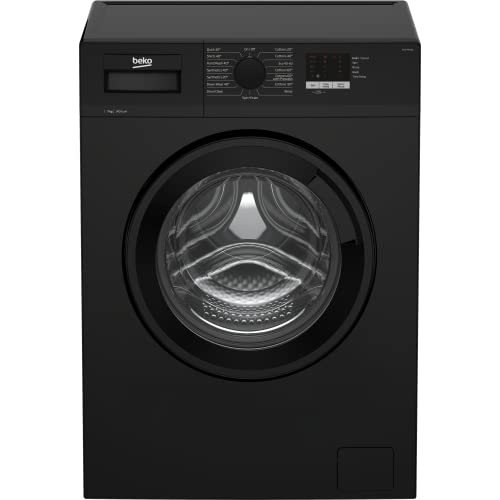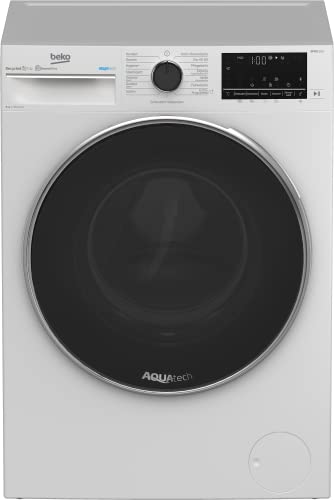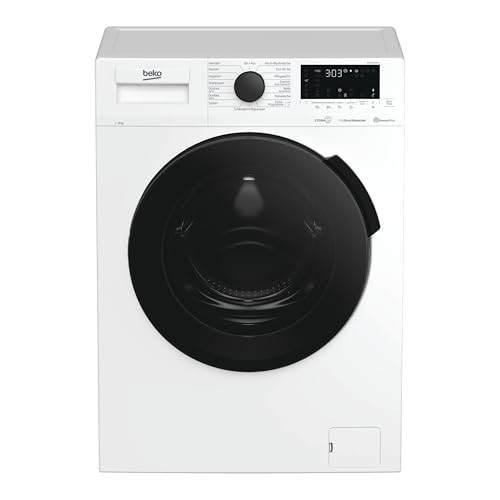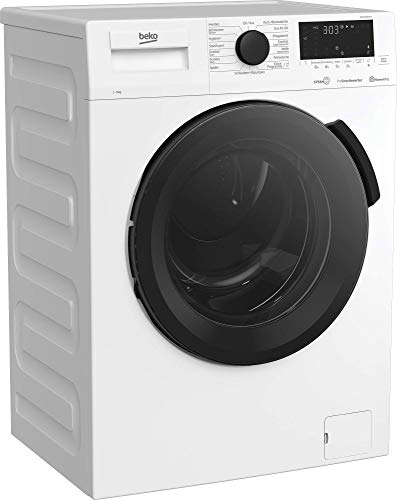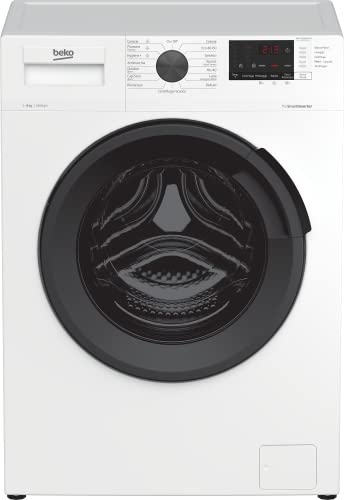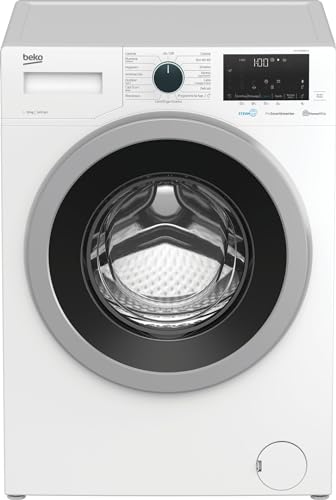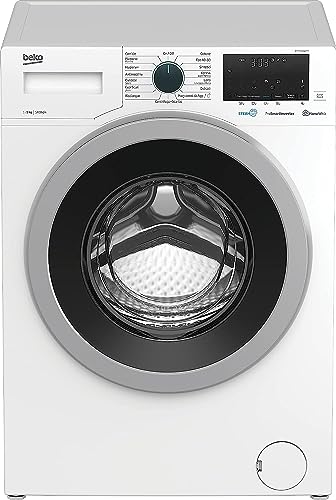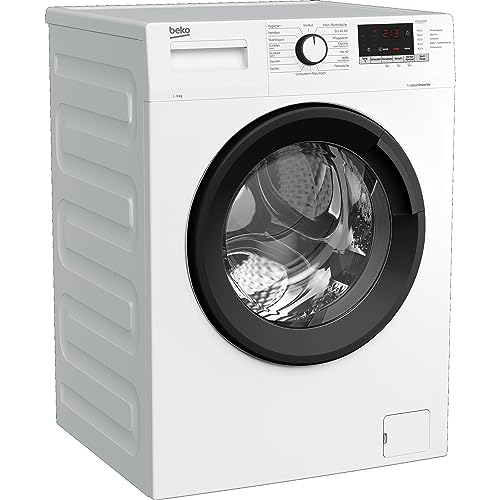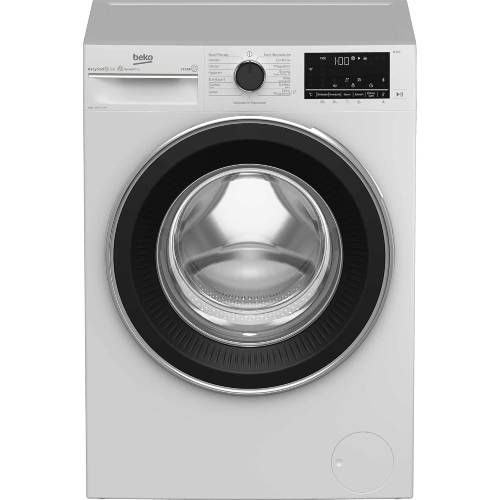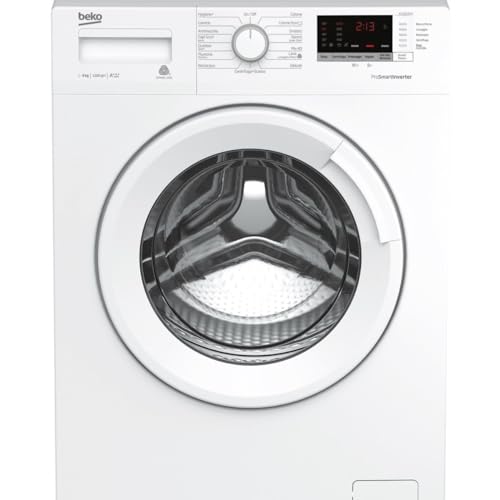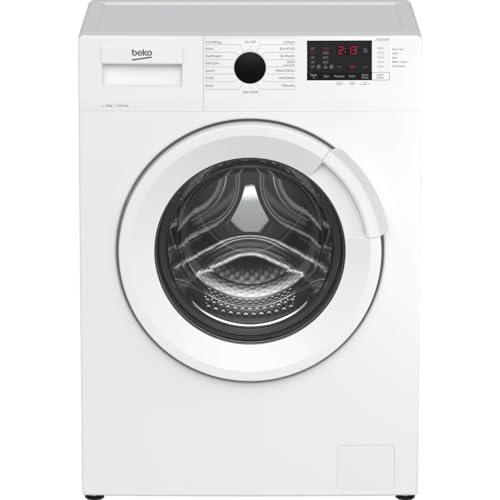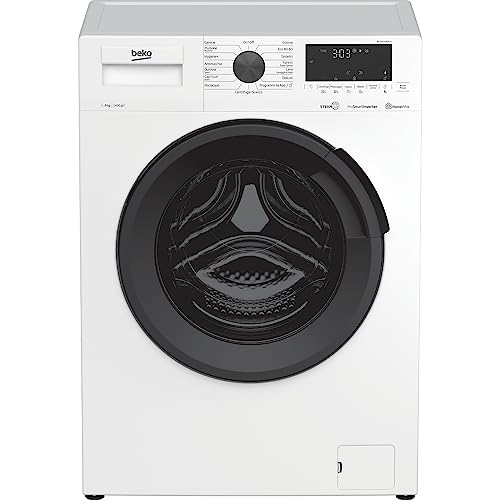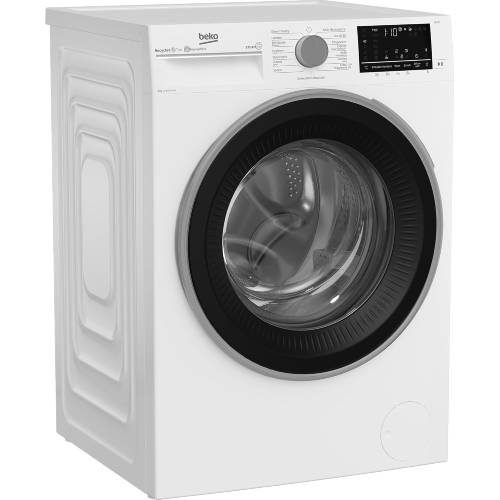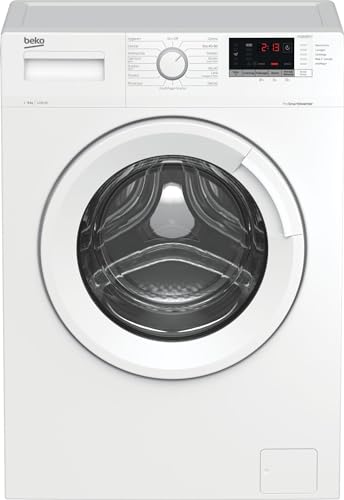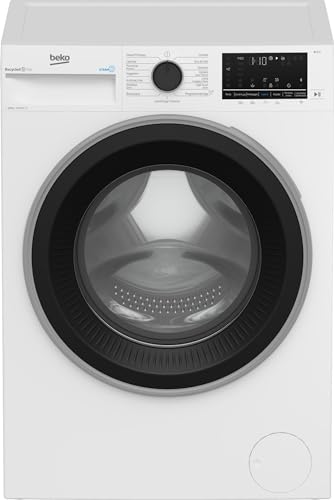Are Beko washing machines good?
Beko washing machines rank #7 in the general ranking of the best washing machine brands, with an overall score of 7.3 points. In terms of user ratings, Beko scores 8.4, ranking #6.
If you are looking for alternatives in a similar price range, consider brands like Hisense, Haier, or Electrolux.
(The ranking considered 22 brands, excluding those with fewer than 6 products.)
The chart below ranks washing machine brands based on their overall scores.
[horizontal-chart-39866564]
What are the main advantages of Beko washing machines?
The main advantages of Beko washing machines compared to other brands are as follows.
- Lower cost: Beko washing machines are, on average, £50 cheaper than the market average (£330 compared to £380).
- Better value for money: Beko washing machines have a higher average quality-price score (7.4 points compared to 7.1 market average).
- Higher popularity: Beko washing machines have an average popularity score of 7.1, higher than the market average of 6, with slightly better user ratings.
- Lower water consumption: Beko washing machines use slightly less water per cycle (45 L compared to the market average of 46 L).
- Quieter operation: Beko washing machines have a lower average spin noise level (72 dB compared to the market average of 75 dB) and a better noise emission class (Class A compared to the average Class B).
- Specialised cycles included: Most Beko washing machines include specialised cycles like the Shirts cycle and Jeans cycle.
- Additional advanced cycles: Many Beko models offer cycles like StainExpert, Hygiene+, Allergen, and Outdoor/Sport.
- Advanced washing functions: Beko washing machines feature options to adjust washing cycles, including pet hair removal (with prewash and extra rinse), rinse hold, anti-crease function, quick function (Fast+), prewash, and extra rinse.
- Included advanced features: All Beko washing machines come with a foam control system, load balancing system, laundry detection system (OptiSense® technology), and self-cleaning DrumClean program.
- High-performance components: Most models include an inverter motor (ProSmart™ with a 10-year warranty), steam technology (SteamCure), AquaStop function, and special drum design (AquaWave).
- Connectivity options: Some models feature Bluetooth connectivity and can be controlled via the HomeWhiz® app.
- Anti-vibration design: Most Beko washing machines are equipped with anti-vibration walls.
- Recycled design: Certain models feature RecycledTub® technology, using recycled plastic materials, mainly from plastic bottles, in the drum construction.
What are the main disadvantages of Beko washing machines?
Beko washing machines have the following disadvantages compared to other brands.
- Poorer energy efficiency: Beko washing machines average Class C, while the market average is Class B. Only 20% of Beko washing machines achieve Class A, compared to 39% for other brands. They also consume more energy, averaging 62 kWh compared to the market average of 55 kWh.
- Higher minimum spin speed: Beko washing machines have a minimum spin speed of 600 RPM, higher than most other brands' products, which go as low as 400 RPM (useful for washing delicate garments).
- Lack of a Baby Care cycle: No Beko washing machine includes a Baby Care cycle (though a similar Hygiene+ cycle is available).
- Fewer quick cycles: Beko washing machines typically have only one quick cycle, while other brands often include two or more.
- Missing advanced features: Beko washing machines do not include features like load balancing systems, Wi-Fi connectivity, smart diagnosis, or AI technology.
- Limited additional features: Few Beko washing machines have memory functions or automatic drawer cleaning.
Who manufactures Beko washing machines?
Beko washing machines are manufactured by Arçelik A.S., a Turkish multinational company with over 60 years of global appliance industry experience. Beko is one of Arçelik's leading brands, known for producing reliable and energy-efficient appliances. Production of Beko washing machines takes place in various facilities worldwide, with key locations in Turkey, Russia, India, and China. These sites highlight Beko's global presence and commitment to providing diverse markets with advanced and durable washing machines equipped with cutting-edge technology.
Arçelik operates 28 manufacturing plants in nine different countries, showcasing its extensive production capacity. Beko has established itself as one of the largest appliance producers in Europe, distributing products in over 130 countries. Despite being a global brand, most Beko appliances, including washing machines, are still produced in Turkey.
What are the different series of Beko washing machines?
Beko washing machines are available in the following series.
- b100 series: Entry-level models with features like laundry detection, self-cleaning, foam control, and unbalanced load detection systems. Some models include the inverter motor (ProSmart™ Inverter Motor), Aqua Stop, anti-crease function, quick function (Fast+), StainExpert™ function, and SteamCure™ technology. Energy classes range from B to E, with a capacity of 7-10 kg. Typically, these have 15 washing programs. Prices range from £250 to £550.
- b300 series: Builds on the b100 series, adding features like Bluetooth connectivity with the HomeWhiz® app, AquaWave® drum, enhanced anti-crease function (SteamTherapy™), Hygiene+ function, and Pet Hair Removal. Some models include AutoClean detergent drawer cleaning. However, advanced features like automatic dosing and pre-mix technology are missing. Energy classes range from A to D, with a capacity of 7-12 kg. These models usually have 15-20 washing programs, with prices ranging from £300 to £450.
- bPRO500 series: Incorporates all the features of the b300 series along with advanced technologies like AquaTech™ pre-mix technology, FiberCatcher® technology (captures up to 90% of microfibres), enhanced anti-crease Ironfast feature, and Wi-Fi connectivity. These models are Class A, with some reaching A-10% energy efficiency. Capacity ranges from 8 to 10 kg, and they have 19 washing programs. Prices typically range from £350 to £650.
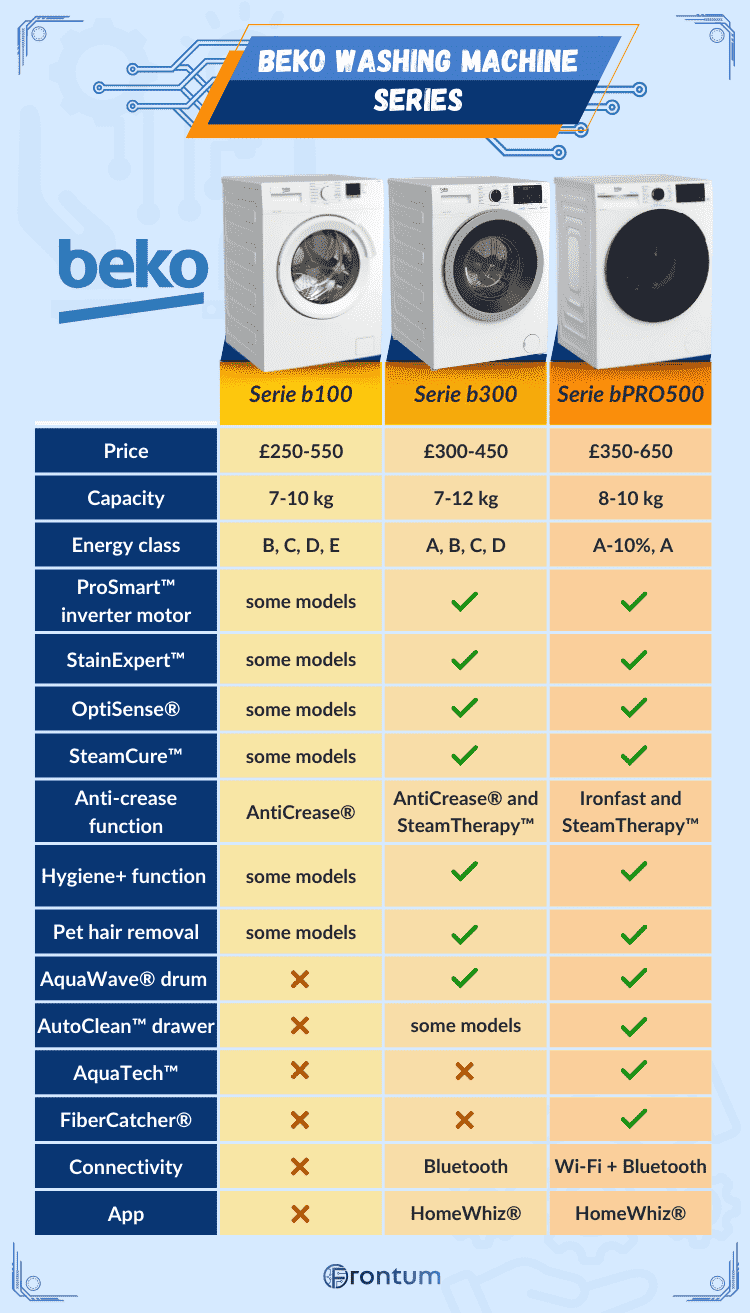
What is the warranty period for Beko washing machines?
Beko washing machines are covered by a 2-year warranty for manufacturing defects. The ProSmart™ inverter motor comes with an extended 10-year warranty.
How much do Beko washing machines cost?
Beko washing machines range in price from £200 to £650, with an average of about £330. This places Beko at #8 in a price ranking of 22 brands. The average cost of a washing machine across all brands is £380. The most affordable Beko models, from the b100 and b300 series, are priced between £250 and £550, while the more expensive bPRO500 series models can go up to £650.
The following chart illustrates the price distribution of Beko washing machines.
[vertical-chart-98243741]
In terms of value for money, Beko ranks #3 out of 22 brands, with an average score of 7.4.
Note: Brands with fewer than 6 products in the database are not included in the ranking.
What should you consider when choosing the best Beko washing machine?
When selecting the best Beko washing machine, consider factors such as capacity, dimensions, energy consumption, water usage, spin efficiency, noise levels, motor type, and available washing programs.
What capacities are available for Beko washing machines?
Beko washing machines offer capacities ranging from 7 to 12 kg, with the most common capacities being 7 kg (35% of models) and 8 kg (35% of models). Drum volumes vary from 55 to 75 litres, with an average of 64 litres (higher than the market average of 58 litres). The depth of Beko washing machines ranges from 49 to 64 cm, so you can find slim models in this range. All Beko washing machines have a width of 60 cm.
The capacities of Beko washing machines are shown in the following chart.
[pie-chart-65388207]
When choosing a washing machine, consider the space where you plan to install it. If space is limited, opt for a slim model with a smaller capacity. For larger households, a machine with an 8 kg or higher capacity is recommended.
What is the energy efficiency of Beko washing machines?
Beko washing machines generally have lower energy efficiency compared to the market average. Energy classes range from A to E, with Class D being the most common. Specifically, 26% of Beko models fall into Class A, 12% into Class B, 26% into Class C, 29% into Class D, and 6% into Class E. No models fall into Classes F or G. By comparison, 39% of all washing machines on the market belong to Class A, and 17% to Class B.
The following chart provides an overview of the energy class distribution of Beko washing machines.
[pie-chart-15286633]
Energy efficiency varies among the different Beko washing machine series. The b100 series includes models ranging from Classes B to E, the b300 series features models spanning Classes A to D, while the bPRO500 series stands out with models exclusively in Class A or A-10%.
The energy consumption of Beko washing machines ranges from 49 to 69 kWh per 100 cycles, with an average of 62 kWh. This ranks the brand 14th out of 19 in terms of energy consumption. Washing machines in Class A generally consume less than 49 kWh per 100 cycles, while those in Class B consume less than 55 kWh, although capacity can affect these values.
Beko washing machines use between 38 and 52 litres of water per cycle, with an average of 45 litres, ranking 5th out of 22 brands for water consumption.
When evaluating a washing machine purchase, energy class and consumption are crucial aspects if you want to save on electricity costs and reduce environmental impact. Washing machines with higher energy classes (A or B) tend to consume less energy, helping to lower utility bills in the long term.
What is the spin efficiency of Beko washing machines?
Beko washing machines mainly belong to spin efficiency Class B (94% of models), while the remaining 6% fall into Class C. On the market, the most common spin efficiency class is B, which includes 85% of washing machines. This classification measures a washing machine’s ability to remove water from garments after the spin cycle and depends on the maximum spin speed.
The following chart illustrates the distribution of spin efficiency classes among Beko washing machines.
[pie-chart-46588894]
In Beko washing machines, the maximum spin speed ranges from 1200 to 1400 RPM. Most models (59%) reach a speed of 1400 RPM, followed by those with 1200 RPM (35%). This distribution aligns with the market average, where 60% of washing machines reach 1400 RPM, and 22% achieve 1200 RPM.
Spin efficiency directly affects the residual moisture in garments: at 1600 RPM, garments retain about 43% moisture, at 1400 RPM 50%, and at 1200 RPM 53%.
If you frequently wash delicate garments, consider the minimum spin speed. Beko washing machines typically have a minimum spin speed of 600 RPM, higher than the market average. Most washing machines on the market (67%) can spin as low as 400 RPM. If you often wash delicate items, consider other brands offering lower minimum spin speeds.
How noisy are Beko washing machines?
Beko washing machines have spin noise levels ranging between 72 dB and 76 dB. The average spin noise level for Beko is 73 dB, placing the brand 7th out of 19 for the lowest noise levels. Compared to the market average of 75 dB, Beko washing machines are quieter. Spin noise represents the loudest phase of the washing cycle and is therefore the primary indicator of a washing machine's noise level.
Beko washing machines fall into either noise emission class A (44%) or B (53%). Class A includes models with noise levels below 73 dB, while class B comprises those between 73 and 76 dB.
The chart below shows the distribution of spin noise levels in Beko washing machines.
[vertical-chart-99698087]
As for washing noise levels, Beko washing machines range between 51 dB and 55 dB, with an average of 54 dB, slightly above the market average of 53 dB. While washing noise is less significant than spin noise, it remains a factor to consider for those seeking a quiet washing machine.
How many washing programs do Beko washing machines offer?
Beko washing machines offer between 15 and 20 washing programs, with 15 among the most common (similar to many other brands).
The chart below provides an overview of the distribution of washing programs among Beko washing machines.
[vertical-chart-29073167]
The most common Beko washing programs include are as follows.
- Cotton
- Eco 40-60
- Synthetics
- Express 14'
- Mixed
- Wool/Hand wash
- Duvets
- Outdoor/Sport
- Jeans
- Shirts
- Drum clean
- GentleCare™/Delicates: keeps delicate cotton looking new for longer
- StainExpert: removes 24 types of stains, such as vinegar, lemon juice, and dish soap
- Hygiene+: certified by the British Allergy Foundation, suitable for prolonged high-temperature washes and allergy protection
Advanced models in the b300 and bPRO500 series include specialized cycles such as Curtains, Lingerie, Plush Toys, and Towels.
Some programs are more common in Beko washing machines compared to other brands. For instance, the Jeans cycle is available in 76% of Beko machines (compared to 45% of other brands), and all Beko machines include a Shirts cycle (compared to 42% of other brands).
Beko washing machines’ ECO cycle lasts between 207 and 239 minutes, with an average of 218 minutes (aligned with the market average). While Beko washing machines usually have one quick cycle under an hour (Express 14'), other brands often include 1 to 3 quick cycles.
Beko washing machines include the following features to adapt cycles to your needs.
- Anti-crease function (available in all Beko washing machines): The bPRO500 series models include SteamTherapy™ (technology that reduces creases and refreshes garments with steam at the end of the cycle) and IronFast (optimizes the cycle for easier ironing). Most b300 series models feature AntiCrease® (which uses gentle drum movements and periodic rotation to prevent creasing) and SteamTherapy™, while some also include IronFast. The b100 series models include AntiCrease® with IonGuard, which uses ions to neutralize bacteria, allergens, and odors.
- Rinse hold (available in all Beko washing machines): Another anti-crease function that keeps water in the drum until you’re ready to start the final spin.
- Prewash (available in all Beko washing machines): Adds an initial cycle to remove stubborn dirt before the main wash.
- Extra rinse (found in 73% of Beko washing machines): Performs an additional rinse to thoroughly remove detergent residues.
- Pet hair removal (found in 50% of Beko washing machines): Adds the Prewash and Extra Rinse programs to the normal cycle.
- Fast+ (found in 76% of Beko washing machines): Reduces program duration by up to 55%.
On the other hand, no Beko washing machines include Water+, Soak, or Night/Silent options.
What are the common features of Beko washing machines?
Beko washing machines come with various features, with each model offering between 7 and 15 features (average of 11 features, similar to the market average of 10 features).
The chart below illustrates the distribution of features in Beko washing machines.
[vertical-chart-48181952]
Most or all Beko washing machines include the following features.
- Laundry detection system: OptiSense® optimizes water, detergent, energy, and time consumption. Three smart sensors monitor laundry, while an additional sensor monitors the machine itself to extend its lifespan.
- Foam control system: Detects and eliminates excess foam during washing to ensure effective rinsing.
- Unbalanced load detection: Detects and alerts users of unbalanced loads but does not automatically redistribute laundry in the drum.
- Overflow protection: Monitors the water level in the drum and automatically removes excess water if necessary.
- Delay start option: Varies from 9 to 24 hours depending on the model.
- Pause & Add: The AddXtra reload function allows users to add forgotten laundry even after the program starts.
Most Beko models are also equipped with anti-vibration sidewalls and an AquaWave drum design. The curved glass door and specially designed paddles move laundry with a wave-like action to treat garments more gently. Some specific models are RecycledTub® washing machines, which use recycled plastic bottles in their tubs to reduce plastic pollution.
Other commonly found features include AquaStop (found in 84% of Beko washing machines), SteamCure™ technology (present in 44% of models), which uses steam before washing to soften dirt and reduce creases, and the ProSmart™ inverter motor, known for being quieter and more durable (present in 80% of Beko washing machines).
Some advanced Beko models include the following features.
- Bluetooth connectivity (24% of Beko models, only in the b300 and bPRO500 series): allows the washing machine to connect to compatible devices for remote management via the HomeWhiz app.
- Memory function (24% of Beko models): enables saving preferred settings directly in the app.
- AutoClean detergent drawer (some models in the b300 and bPRO500 series): automatically cleans the detergent drawer after each wash.
- Pre-mix technology (only bPRO500 series): AQUAtech™ mixes detergent with water and sprays it directly onto clothes through a special paddle in the drum.
- FiberCatcher® technology (only bPRO500 series): reduces water pollution by capturing up to 90% of microfibres.
- Interior light (some models in the b300 series and some in the bPRO500 series)
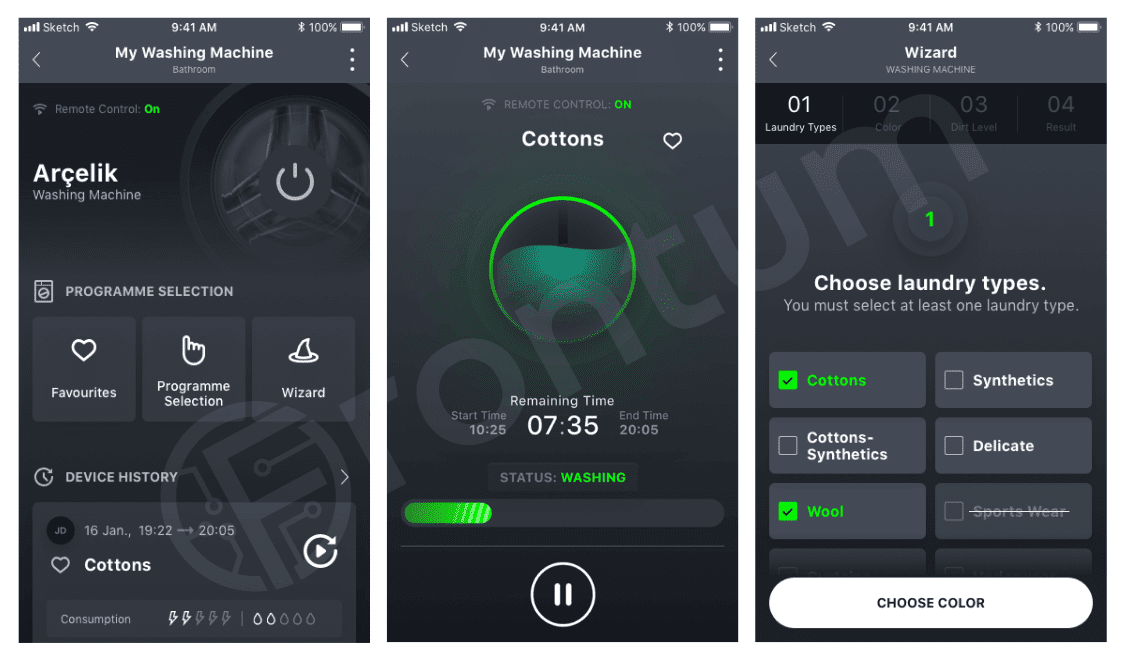
However, Beko washing machines do not include some features found in other brands, such as the load balancing system (43% of all washing machines), smart diagnosis function (43%), automatic dosing system (10%), Wi-Fi connectivity (23%), AI technology (11%), energy-saving mode (19%), and water jets system (17%).
Front-loading or top-loading: which type of Beko washing machine is better?
Beko produces almost exclusively front-loading washing machines and currently does not offer top-loading models. If you are looking for a top-loading washing machine, consider other brands.

